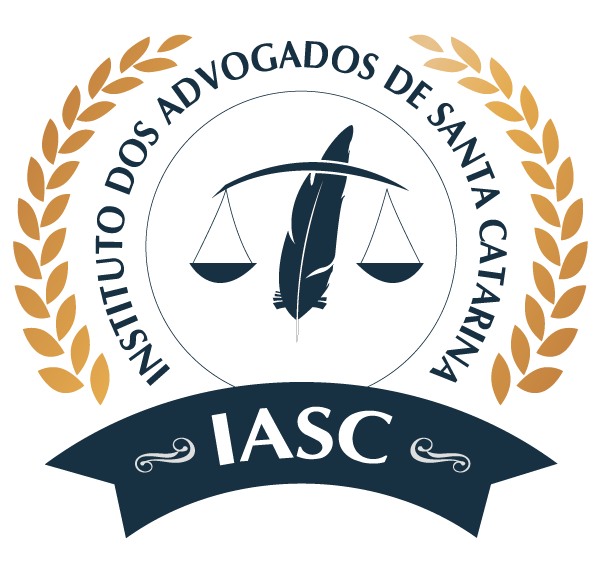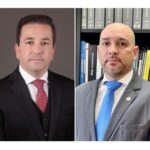O Estado da Arte do Direito à Liberdade Religiosa na Rússia
Por Wilson Knoner Campos Presidente da Comissão de Direitos Humanos do IASC.
A pena de 6 anos de prisão imposta em sentença lavrada na semana passada por um juízo criminal do distrito de Oryol (Rússia) faz aumentar as graves violações ao direito de liberdade religiosa já impostas pelas autoridades russas ao dinamarquês Dennis Christensen.
Conforme amplamente divulgado recentemente, a Suprema Corte de Justiça da Rússia decidiu em 2017 que a religião Testemunhas de Jeová é considerado um grupo “extremista/radical” equivalente a uma entidade terrorista, após o que rapidamente seguiu-se uma “caça às bruxas” dos membros de tal religião e simpatizantes que praticam suas doutrinas e liturgias.
A decisão da Suprema Corte de Justiça da Rússia de banir e tornar ilegal em seu país a religião Testemunhas de Jeová fez rapidamente aumentar a perseguição religiosa e resultou no ajuizamento de diversas ações penais contra os membros da citada religião.
Apesar de a ex-União Soviética (atualmente a Rússia) ter se abstido de votar a Resolução 217 da ONU, em 10 de dezembro de 1948, em Paris, mais tarde veio a concordar, dentre outras providências, com o estabelecimento do Alto Comissariado das Nações Unidas para os Direitos Humanos – ACNUDH (Viena, 1993), além de ser membro permanente do Conselho de Segurança da Organização das Nações Unidas.
Tal postura permite concluir que a própria Rússia deve fazer cumprir os direitos humanos positivados na Declaração Universal dos Direito Humanos – DUDH, um marco do progresso da humanidade. Além disso, o atuar passivo da Rússia (deixando de repelir atos normativos posteriores da ONU, etc), concede ao Alto Comissariado das Nações Unidas para os Direitos Humanos – ACNUDH a prerrogativa de receber petições e denúncias acerca de violações ao rol de direitos elencados na DUDH, o que deveria ensejar medidas como o reconhecimento da “inconvencionalidade” (viola o tratado multilateral da ONU) e ilegal ante a DUDH, a fim de pressionar as autoridades domésticas a revogar a prisão e sentença impostas ao Sr. Chistensen, ao fundamento da absurda alegação de cometimento de crime pelo simples exercício de um direito que a DUDH concedeu a ele, a saber, a liberdade religiosa em suas diversas dimensões.
Assim, a detenção e a posterior condenação citadas violam não apenas o art. 18 da DUDH [Todo ser humano tem direito à liberdade de pensamento, consciência e religião; esse direito inclui a liberdade de mudar de religião ou crença e a liberdade de manifestar essa religião ou crença pelo ensino, pela prática, pelo culto em público ou em particular], mas também o art. 9º do mesmo diploma, que estabelece “ninguém será arbitrariamente preso, detido ou exilado”.
É o momento de ver se o Alto Comissariado das Nações Unidas para os Direitos Humanos cobrará da Rússia a observância dos direitos elencados na DUDH e se implementará os meios convencionados para exemplarmente não apenas sancionar o governo russo, mas também para impor a cessação da inadmissível prisão de Dennis Christensen em razão do mero exercício de um direito que a DUDH lhe outorgou.
“The State of the Art of Right to Freedom of Religion in Russia”*
*By Wilson Knoner Campos, Brazilian Lawyer at Bertol Law Firm
and Chairman of the Humans Rights Commission
of Santa Catarina Lawyers Institute (IASC)
The 6 years of detention sentencing issued last week by an Oryol Court (Russia) increases the grievous breaches of the religious freedom already impose to Dennis Christensen (Danish) by Russians authorities.
As largely reported in recent years, the Supreme Court of Justice of Russia ruled in 2017 that the Jehovah Witnesses Religion was considered an “extremist” group almost equivalent to a terrorist entity, which was suddenly followed by a “witch hunt” of members of such religion and sympathizers who practiced its doctrines.
The outlawed and ban of Jehovah Witnesses Religion Supreme Court of Russia’s ruling sparked the rising of religious persecution and resulted in the filing of many criminal cases against believers from that religion.
Though former USSR (actual Russia) abstained from voting the Resolution 217 on 10 December 1948 in Paris, it later agreed among other things on the establishment of a UN High Commissioner for Human Rights (Vienna, 1993), plus the fact that it is a permanent member of the United Nations Security Council.
Such posture allows the understanding that therefore Russia must enforce human rights adopted in the Universal Declaration of Human Rights (UDHR) as a milestone document. Also, it grants the Office of the High Commissioner for Human Rights (OHCHR) the prerogative to receive petitions denouncing breaches of the bill adopted in the UDHR, which should be follow by measures declaring the ruling as unconventional (violates UN multilateral treaty) and illegal before UDHR, in order to pression domestic authorities to revoke the imprisonment and sentencing of Mr. Christensen under the absurd allegation of committing crime when simply exercises a right UDHR entitles him to.
Hence, the detention and late sentencing mentioned violates not only Article 18 of UDHR [“Everyone has the right to freedom of thought, conscience and religion; this right includes freedom to change his religion or belief, and freedom, either alone or in community with others and in public or private, to manifest his religion or belief in teaching, practice, worship and observance”.] but also the article 9 of UDHR, which states “no one shall be subjected to arbitrary arrest, detention or exile”.
Time to see if OHCHR will take a step towards demanding legally binding of UDHR and other legal tools to exemplarily not only sanction Russia but to enforce all necessary means to release Dennis Christensen from illegal imprisonment due to his mere exercising of right to freedom of religion.









Pingback : Liberdade Religiosa Sob Ameaça: Hoje eles, amanhã eu? – IASC